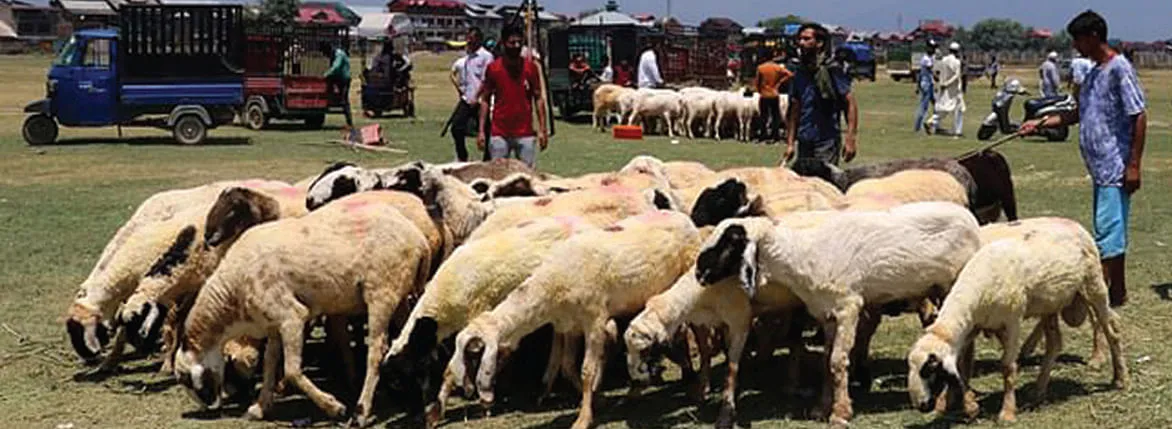Breaking away from the traditional set of doing business, young entrepreneurs are choosing a new line of activities. Sheep farming is one such activity that is fast catching attention. With the government providing incentives besides logistic support and financial assistance, a large number of youth have set up sheep farms here which according to them will bridge the gap between demand and supply of mutton in the Valley.
Javid Ahmad is one such example who left a job in the private sector to establish a sheep farm. Though initially he had to face a tough time convincing his parents. But now everybody is happy with his work as he says that “I started initially with 25 ewes and 1 ram. As an owner of the farm I had to work hard as the sheep can catch diseases very quickly and one has to be very cautious in handling them. After two years of being in the business I have around 500 sheep and so far I am doing well as there is huge demand for mutton in the Kashmir division,” Ahmad said.
Another youth, Imtiyaz Ahmad – an undergraduate student has also started a sheep farm in the Islamabad area. He says that though it is his first year in business. “But I am hopeful that it will be a successful venture as there is huge potential in this line because of the demand for mutton in the market. “
There is growing demand for mutton in Jammu and Kashmir. J&K on an average consumes 600 lakh kilograms of mutton annually of which 350 lakh kgs are imported from other states.
“On an average 600 kilograms of mutton is consumed in J&K annually. There is a shortfall in local production which is met by imports. J&K every year imports around 150 to 300 lakh kgs of mutton thereby creating huge avenues for investment in the sector and creation of employment opportunities,” reads an official document of Animal Husbandry department.
Interestingly sheep, goat meat consumption in Kashmir is witnessing a constant increase. In four years the annual consumption has increased by 130 lakh kilograms.
As the Jammu and Kashmir is heavily dependent on outside supplies to meet mutton requirements, the J&K’s new Livestock Breeding Policy aims to work towards import substitution of Rs 2000 crore spent on mutton purchases by bridging the demand and supply gap by focusing on producing high mutton yield breeds in the state.
According to the Policy document, currently around 15 lakh ruminants are imported each year to meet the mutton demand in Kashmir.Therefore, the policy document which has been approved by the government has emphasized on increasing production of mutton.
“Emphasis shall be given on production of mutton and at the same time gains achieved in fine wool so far shall be taken care of by appropriate selection and breeding methods to evolve a dual purpose (wool and mutton) breed for the state.”
“The sheep breeding policy in vogue in Jammu andKashmir is one recommended by National Commission on Agriculture (1976) forNorthern Temperate Region wherein northern temperate areas of the state were earmarked for the fine/apparel wool production.”
“With the advent of globalization and international trade, wool from international markets is available at cheap rates with theresult remuneration from wool is not profitable However, demand for the mutton has increased dramatically with time and currently the state imports about 15lakh ruminants annually. Therefore there is a need for a policy shift from rearing sheep for apparel to mutton attribute,” it adds.







